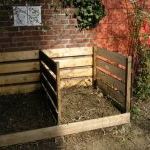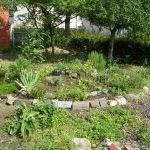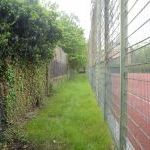Humboldt gymnasium garden
For many years the students and teachers of the Humboldt-Gymnasium in Cologne have been growing vegetables, fruits and herbs in their own school garden. They are constantly extending the garden’s area and recently started growing grapes with the help of BUND Köln (association for ecological conservation). Teachers and parents of the students are always welcome to visit the garden and, if they wish to, help taking care of it.
Website
Useful links
RHS helps schools in the UK with growing projects
Grow Veg has tips on setting up a school garden
Country
Media
* TOP TIP *
'When planning a growing area, it is always good to harness the skills of local gardeners - either parents, grandparents or members of the community. Make a plan for looking after things in the school holidays'
How is the project linked to climate change and sustainability?
For children to understand what it takes to grow the food they eat, starting a garden project can be very helpful. Planning the beds, sowing seeds, taking care of the plants and watering them on a regular basis develop the student’s skills of structuring and taking responsibility. Over six tonnes of food are being wasted each year in german households. Understanding how much time and effort it takes to grow food causes the students to take better care of the food they buy and thus create less waste. This is essential for a sustainable environment.
Who is involved?
A working group consisting of students and one teacher take care of most of the required activites. For the growing of grapes they received help from professional winemakers (BUND Köln). Furthermore, teachers and parents are invited to help.
How are the participants involved?
Activties include sowing the vegetables, fruits and herbs, watering the plants regulary and finally harvesting them. The biodiversity of the school garden attracts many birds and insects for which the students built an insect hotel. Teachers and parents are invited to visit the garden, or even help gardening on Tuesdays. The professional winemakers of BUND Köln have helped the working group with growing the grapes, and here the students also learned about how to take care of the vines. Finally they learnt how to make juice from the grapes.
Key steps:
Step 1. Start a working group. Are there any professional gardeners in the community who are interested in helping?
Step 2. Plan the garden: Where’s the best location on the school’s district? Which tools and building materials are required? Where to get these tools or how to fund them?
Step 3. Start building the garden and divide into different beds. Start planting the chosen vegetables, fruits and herbs.
Step 4. Regulary water the garden and take care of the different plants.
Step 5. Harvest at the right time and enjoy your fresh, homegrown food!
Step 6. Look for further projects: Are there local organisations or gardeners who can help or have good ideas for the school garden? Or maybe build an insect hotel to attract insects and birds?




